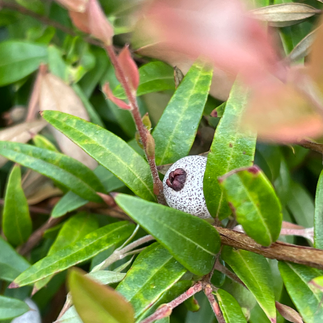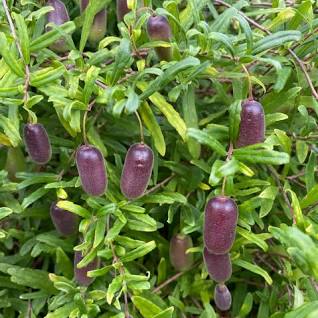Attracting Beneficial Insects Into Your Garden
- Isis
- Mar 2
- 3 min read

Are you a joyful gardener, a passionate permaculturalist, or someone who loves to walk or hike through our vibrant ecosystems? You'll be thrilled to encounter a dazzling array of insects! In your garden, you might find some critters you'd rather not have in abundance, especially those that munch on your tasty veggies in the patch or take a bite out of your fruit trees.
Some individuals might quickly opt for an eco-friendly pest spray, others might choose a stronger chemical option, some might think there's enough to go around, while others are interested in or already working on attracting beneficial insects to their garden to help establish a harmonious, symbiotic environment.
In nature, these remarkable beneficial insects exist to counteract pesky insects like mealy bugs, scales, fruit flies, thrips, and whiteflies when they become unbalanced, among others. So lets begin with mealy bug, a lovely insect that sometimes decides to feed on your delicious fruit trees before you have the opportunity to harvest, or dine on your plants that are growing in your pots, or some of the woody plants that you are growing including the herbaceous perennials.
So what can you do to create a balance so there is enough for all? Firstly monitor the health of your plants, prune some of the dense foliage. minimizing the more sheltered feeding spots, and look at what beneficial insects will help counter balance the feeding frenzy. Some of the natural predators of the mealy bug are Chilocorus and Cryptolaemus, species of lady beetles. Lacewings and Aphytis are also natural predators for the mealy bug.

By planting herbs and flowering plants and ensuring they have water, you can create a sheltered oasis in your garden where lady beetles can thrive over the winter. Keep your garden free of pesticides to protect these beneficial insects and maintain healthy, nectar-rich plants, herbs, and flowers. Remember, lady beetles are advantageous at every stage of their life cycle, from larvae to adulthood, as they mainly consume aphids, mites, small insects, and insect eggs.
Cryptolaemus
An alternative method to care for your garden is by planting delectable native fruiting plants, which are generally more resistant to insect infestations, such as Austromyrtus dulcis, also known as Midyam Berry. These plants produce small, flavorful fruits and feature exquisite white flowers that attract pollinators.
Another delicious option is the Billiarderi scandens, a native climbing or scrambling plant that attracts pollinators and produces berries. Both plants require little maintenance, but if you prefer your shrubs to remain compact, you may need to prune the Midyam berry.
Ensuring plant health relies on maintaining healthy soil. Establishing a composting area in your garden that produces worm tea aids sustainability by recycling food scraps and reduces the necessity of constantly applying chemical fertilizers. Incorporating rich compost into your soil boosts micro-organism activity and supports a diverse range of fungi, lichen, and moss. Adding hardscape elements like fallen branches, rocks, and shaded areas from harsh sunlight will foster a self-seeding, thriving ecosystem.
It's crucial to remember that when introducing compost to a site where you plan to plant natives, it's often beneficial to allow the soil to remain fallow for a period before planting your edible and flowering natives. This approach ensures that pollinators, plants, and all other inhabitants can flourish.
Happy creating!❤️🦎🍃













Comments